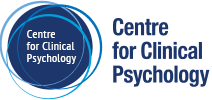Have you heard of Alexithymia?
The construct of alexithymia was identified in the 1970s. The term originated from Greek roots; “no words for emotion”.
Alexithymia is a psychological construct that describes difficulty in verbal expressions of affect (feellings) which leads to description of emotions as physiological reactions or somatic sensations as opposed to feelings (Hogeveen & Grafman, 2021).
Key Features of Alexithymia
- Difficulty identifying feelings – Individuals with alexithymia often struggle to differentiate between emotional states and physical sensations (e.g., not knowing if they’re sad or just tired).
- Difficulty describing feelings – It is often a challenge to name emotions, or put their emotions into words, often using vague or overly rational language.
- Externally-oriented thinking – There is a tendency to focus more on external events rather than their inner emotional experiences.
Given these key features of alexithymia, individuals may find it harder to connect with others on an emotional level.
Potential Causes of Alexithymia
The factors that contribute to the development of alexithymia are still an area of growing research.Two main factors that are discussed (Hogeveen & Grafman, 2021) are neurological components and developmental factors.
- Neurological components are defined as differences in brain function, particularly in areas related to emotional processing. This is prevalent in those with Autism Spectrum Disorder (ASD). Researchers in this area found that 49.9% of autistic adults (Kinnaird et al., 2019) and 55% of autistic adolescents (Milosavljevic et al., 2016) meet clinical cut-off for alexithymia. Additionally this research indicates that alexithymia correlates more strongly with socioemotional difficulties in individuals with ASD than the autism diagnosis or the severity of ASD symptoms (Brewer et al., 2016; Milosavljevic et al., 2016; Morie et al., 2019).
- Developmental factors include the impact of early trauma, neglect, or emotionally inhibiting environments. For example, alexithymia was found to be a significant factor that led to the development of alexithymia in women who sustained trauma from an intimate partner compared to women who were not traumatised (Signorelli, et al., 2020). Treatment of alexithymia was also found to have an effect on reducing trauma symptoms (Zorzella et al., 2020).
Despite alexithymia being a subclinical trait, current research suggests it has an important role in the development of mental health disorders and its improvements.
What can help with Alexithymia?
Psychological therapy, such as cognitive behavioural therapy, can help an individual build emotional vocabulary and emotional awareness. Therapy may consist of psychoeducation on the different types of emotions (e.g. anger) and associated thoughts (e.g. “I can never get this right”), and behaviours (e.g. tensed shoulders). Visual aids, such as a feeling wheel, are often used to help build emotional literacy. Once a foundation of emotional vocabulary is formed, behavioural tasks help to consolidate the emotional vocabulary by putting into practice being emotionally aware with oneself and others. For example, doing a mindful check in with yourself, which includes stopping and noticing how the body feels, the thoughts on your mind, naming an emotion that is consistent with these observations, and expressing it to someone.
If you experience similar difficulties or you are interested in finding out more, our psychologists at the Centre for Clinical Psychology can help you. Please contact (03) 9077 0122 or admin@ccp.net.au to book an appointment.
References
Hogeveen, J., & Grafman, J. (2021). Alexithymia. In Handbook of Clinical Neurology (Vol. 183, pp. 47–62). Elsevier. https://doi.org/10.1016/B978-0-12-822290-4.00004-9
Lee, K. S., Murphy, J., Catmur, C., Bird, G., & Hobson, H. (2022). Furthering the language hypothesis of alexithymia: An integrated review and meta-analysis. Neuroscience and biobehavioral reviews, 141, 104864. https://doi.org/10.1016/j.neubiorev.2022.104864
Signorelli, M. S., Fusar-Poli, L., Arcidiacono, E., Caponnetto, P., & Aguglia, E. (2020). Depression, PTSD and alexithymia in victims of intimate partner violence: A case-control study. Archives of Clinical Psychiatry (São Paulo), 47(2), 45–50. https://doi.org/10.1590/0101-60830000000230
Zorzella, K. P. M., Muller, R. T., Cribbie, R. A., Bambrah, V., & Classen, C. C. (2019). The role of alexithymia in trauma therapy outcomes: Examining improvements in PTSD, dissociation, and interpersonal problems. Psychological Trauma: Theory, Research, Practice, and Policy, 11(5), 487–495. https://doi.org/10.1037/tra0000433






